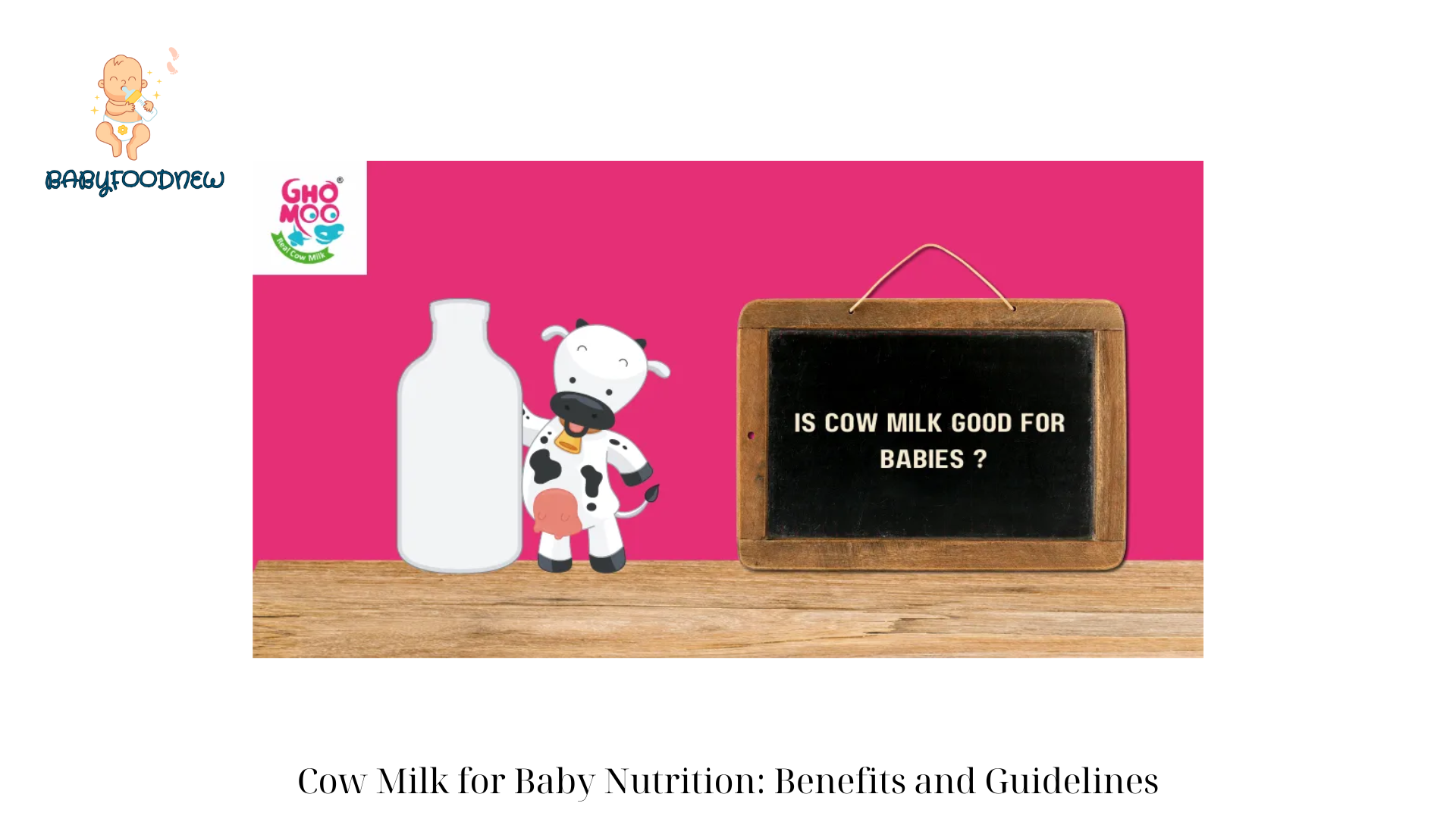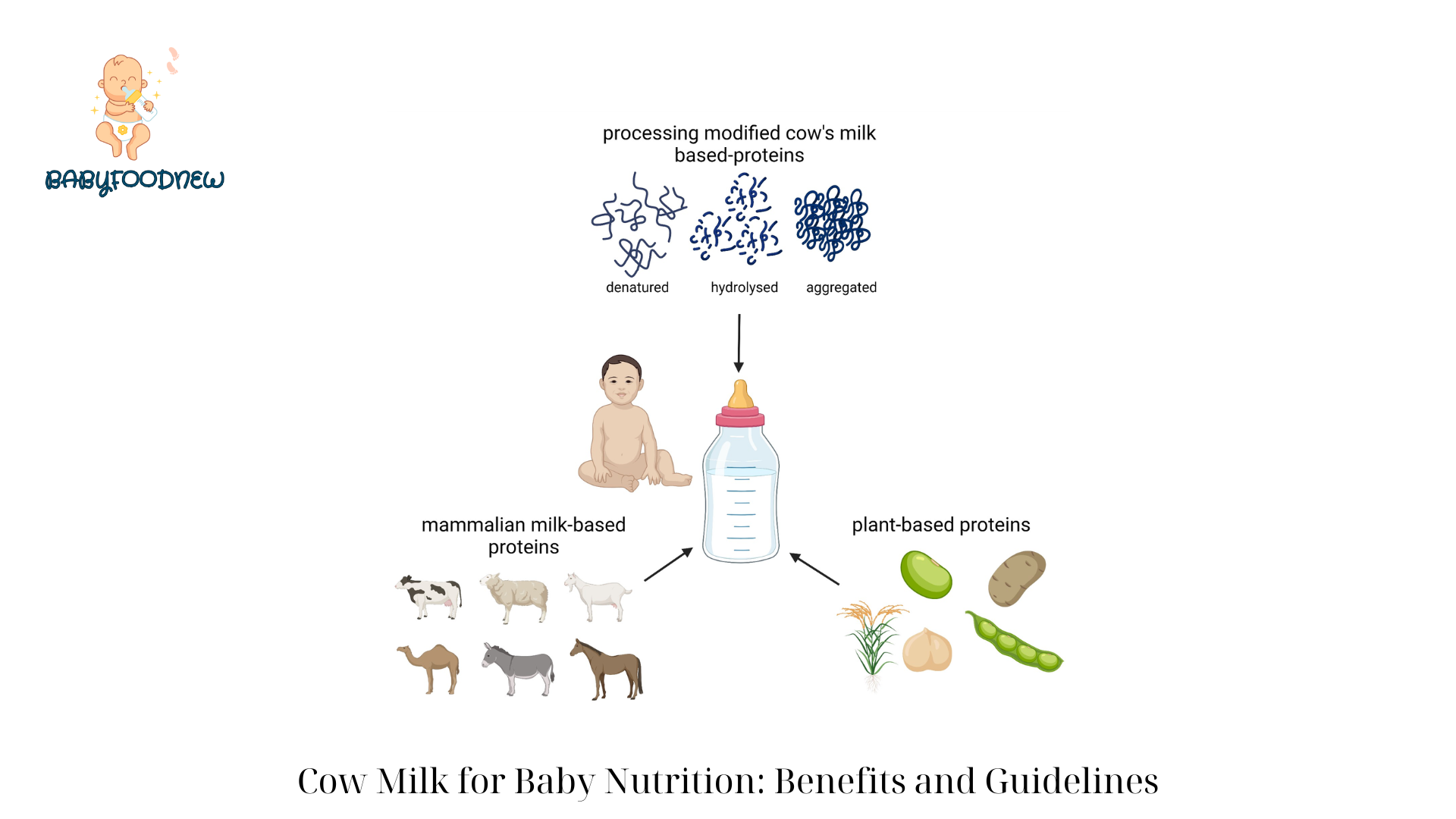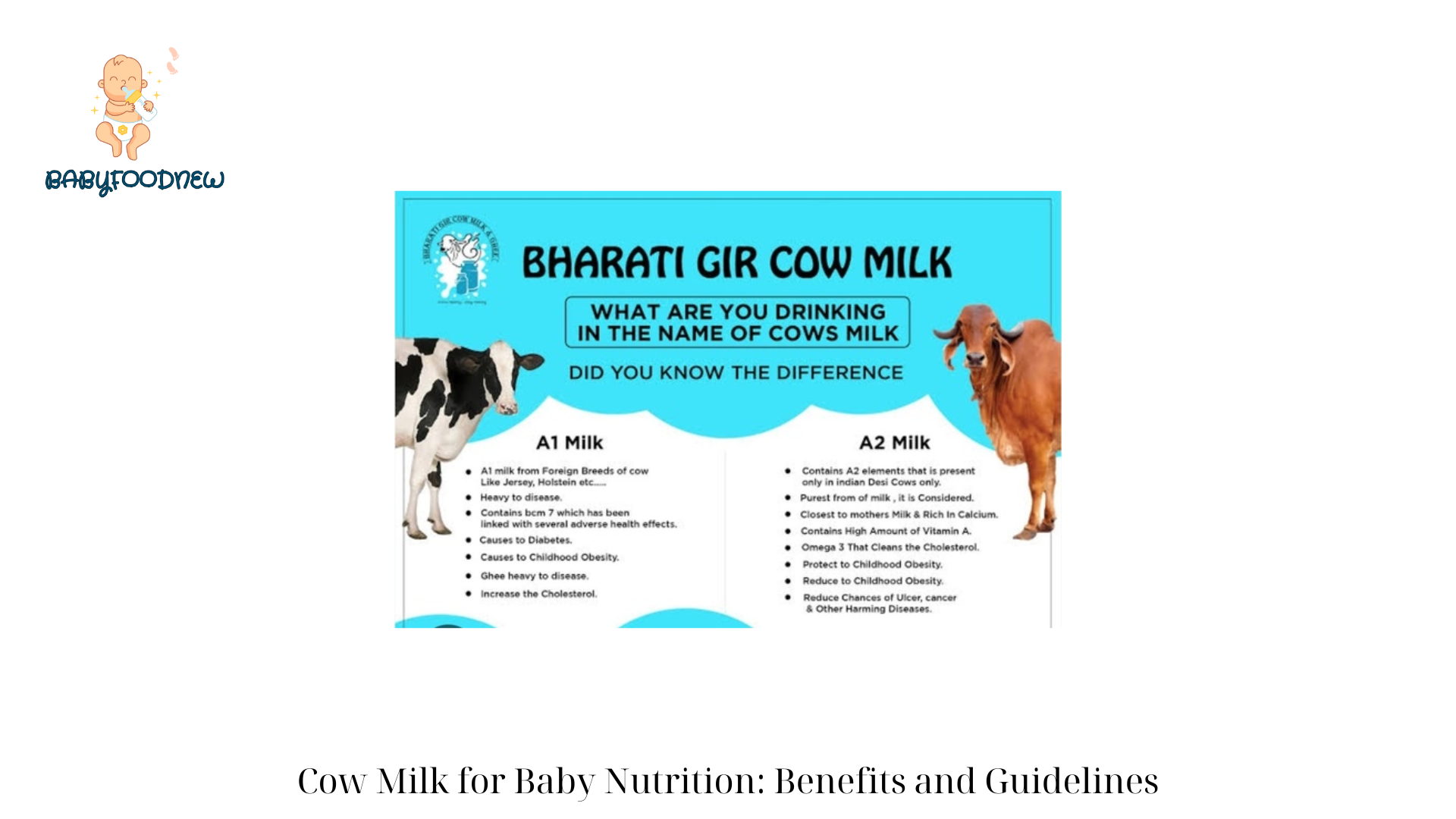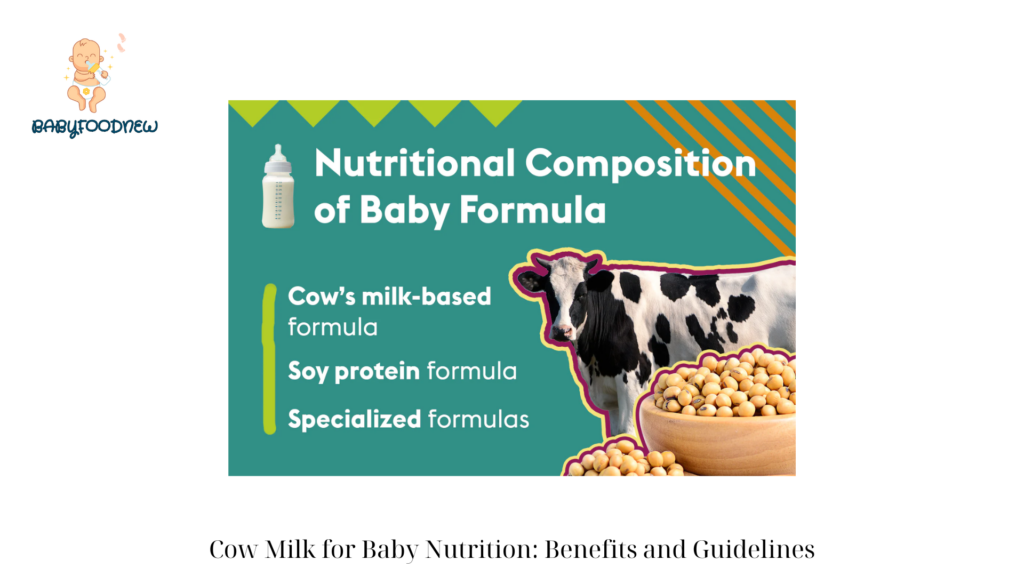Responsive BMI Calculator
Cow Milk for Baby Nutrition long been discussion over cow milk's suitability for supplying babies with the best nutrition possible. Even though breast milk is the recommended first choice for infant nutrition, cow milk can be introduced as a substitute or supplement in certain situations. The nutritional makeup of cow milk, its possible benefits, and crucial parental concerns will all be discussed in this article Babyfoodnew with the advantages and recommendations for using it to nourish babies.

Cow Milk for Baby Nutrition: Benefits and Guidelines
Understanding Cow Milk Composition:
Cow milk is a rich source of various essential nutrients required for a baby's growth and development. It contains proteins, carbohydrates, fats, vitamins, and minerals. The primary protein in cow milk is casein, which provides a good balance of amino acids necessary for muscle and tissue development. Lactose, a carbohydrate found in cow milk, is an important energy source for babies. Additionally, cow milk is a natural source of calcium, phosphorus, and vitamin D, all of which play a crucial role in promoting healthy bone development.
Introducing Cow Milk to Babies:
The American Academy of Pediatrics (AAP) recommends exclusive breastfeeding for the first six months of a baby's life. After the introduction of solid foods around six months, parents can consider incorporating cow milk into their baby's diet. It is important to note that cow milk should not be introduced as a primary source of nutrition before the age of one year. Before introducing cow milk, it is advisable to consult a pediatrician for guidance on the appropriate timing and suitability for your baby.
Benefits of Cow Milk for Baby Nutrition:

- Nutritional Value: cow milk for baby nutrition is a nutrient-dense beverage that can provide essential vitamins and minerals necessary for a baby's growth. It is particularly rich in calcium, which is vital for bone development and strength.
- Convenience: Cow milk is easily accessible and readily available in most parts of the world. This makes it a convenient option for parents who may not have access to breast milk or are unable to breastfeed exclusively.
- Allergen Introduction: Introducing cow milk to babies at the appropriate age can help in gradually exposing them to potential allergens. This may reduce the risk of developing allergies later in life.
- Energy and Satiety: The natural fats present in cow milk provide a good source of energy and can help keep babies feeling full and satisfied between meals.
- Nutritional Comparison: cow milk for baby nutrition and breast milk have different nutritional compositions. Breast milk is specifically tailored to meet a baby's nutritional needs, providing the ideal balance of carbohydrates, proteins, fats, vitamins, and minerals. Cow milk, on the other hand, has a higher protein and mineral content but lacks certain nutrients found in breast milk, such as antibodies and specific enzymes.
- Pasteurization: It is important to note that cow milk available in stores is pasteurized to eliminate harmful bacteria. Pasteurization ensures that the milk is safe for consumption, especially for babies with underdeveloped immune systems. Raw or unpasteurized milk should never be given to infants due to the risk of bacterial contamination.
- Formula Feeding: In cases where breast milk is not available or insufficient, infant formula is specifically designed to provide the necessary nutrients for a baby's growth and development. Formula milk is made from cow milk or other sources and undergoes extensive processing to resemble the composition of breast milk as closely as possible.
- Cow Milk Alternatives: Some parents opt for plant-based milk alternatives, such as soy milk, almond milk, or oat milk, instead of cow milk. It is important to remember that these alternatives may not provide the same nutritional profile as cow milk. If you choose to use a milk alternative, ensure it is fortified with the necessary nutrients and consult with a pediatrician to ensure it is suitable for your baby.
- Transitioning to Cow Milk: When the time comes to transition your baby from breast milk or formula to cow milk, it is advisable to do it gradually. Start by introducing small amounts of cow milk for baby nutrition mixed with breast milk or formula and gradually increase the proportion of cow milk over time. This gradual transition helps your baby's digestive system adjust to the new milk.
- Individual Considerations: Every baby is unique, and what works for one may not work for another. It is essential to consider your baby's individual needs, any existing allergies or intolerances, and consult with a healthcare professional before introducing cow milk or any other type of milk into their diet.
- Guidelines for Introducing Cow Milk:

- Age: Cow milk should not be introduced as a primary source of cow milk for baby nutrition before the age of one year. Babies under one year of age have specific nutritional needs that are best met through breast milk or infant formula.
- Dilution: When introducing cow milk, it is recommended to dilute it with water in a 1:1 ratio. This helps in adjusting the concentration and making it easier for babies to digest.
- Whole Milk: Whole cow milk is recommended for babies between the ages of one and two years. The higher fat content in whole milk is important for brain development during this critical stage.
- Limiting Quantity: The AAP suggests limiting cow milk for baby nutrition intake to no more than 24 ounces per day for babies between one and two years of age. Excessive milk consumption can reduce the appetite for other essential foods.
Considerations and Precautions:

- Allergy and Intolerance: Cow milk allergy is one of the most common food allergies in infants. It is important to be aware of the signs of an allergic reaction, such as rash, vomiting, or diarrhea, and to consult a healthcare professional if any symptoms arise.
- Iron Deficiency: Cow milk is low in iron, which is an important nutrient for babies. Excessive cow milk consumption can lead to iron deficiency anemia. It is crucial to ensure that babies are receiving adequate iron from other food sources.
- Digestive System Maturity: Babies' digestive systems are still developing during the first year of life. Cow milk can be harder to digest compared to breast milk or formula. It is important to monitor your baby's response to cow milk and consult a pediatrician if any digestive issues arise.
Conclusion:
Cow milk can play a role in providing essential nutrients for a cow milk for baby nutrition and development. However, it is crucial to follow the recommended guidelines and consult a pediatrician before introducing cow milk to ensure it is appropriate for your baby. Breast milk or infant formula remains the primary source of nutrition for babies under one year of age. By understanding the benefits and considerations of cow milk for baby nutrition, parents can make informed decisions that support their baby's health and well-being.


